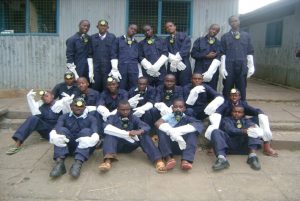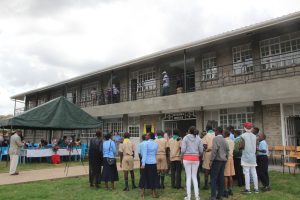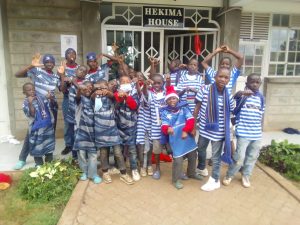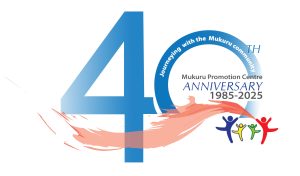MPC Rehabilitation Centre for Street Boys offers a 12-month residential program for boys between 8 and 16 years. The Centre provides non-informal education classes and vocational training skills for the non-academic.
Each year, the Rehab Centre social workers recruit boys from the streets, some of whom have drug addictions. The catchment area for MPC includes South B, South C, Nairobi West, Fuata Nyayo, Kayaba, Lunga Lunga, Reuben and Mukuru Kwa Njenga. The program’s primary purpose is to connect the boys with their families. Tracing families can take many months. Sometimes, the boys are not in great shape when they arrive, so the Centre conducts a complete medical checkup, educational and psychological assessments, counselling and family history.
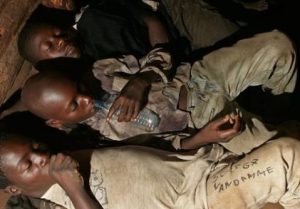
Boys who do vocational training are registered for the Grade III Carpentry course and sit the National Industrial Training Authority (NITA) exams in December. When they leave the Centre, the boys have a skill enabling them to find employment and hence, to set them in the right direction.
The two categories for education are Primary One and Primary Two. The boys who have had little to no education are placed into Primary One and the others who have some education are placed into Primary Two. By the end of the year, there is a good indication of the boy’s academic ability. Those who show promise are identified and we endeavour to find sponsors to finance their further education. At times, because of their backgrounds, either orphaned, rejected by the family, or families that can not be found, they would attend boarding school.
The Centre has a wholistic approach to the boy’s welfare. Staffed with social workers, counsellors, house parents, and welfare officers the Centre explores the different stories of boy’s lives. Home Searches and Home Visits are critical in assisting the Centre to attain a good picture of the family circumstances. The visits help to validate what the boys tell during the recruitment process as well as the reintegration with families after the rehabilitation. The Home searches and visits capture the desperate cases of high poverty levels, total orphans and children from separated families. The home visits also help the staff understand better the boys we manage and plans for their future.
While at the Centre the boys participate in a range of activities for the mind, body and soul. There are weekly group and individual counseling sessions, education classes, motivational and formation talks, catechism, gardening, music, drama, athletics, football, acrobatics, scouts, life skills and environmental exercises.
The journey concludes for many boys at Graduation in December. Their families, who were reunited due to the home visits and attended open sessions during the year, participate in the ceremony and return home together. Sometimes some of the boys are not reintegrated with family because they are orphaned or rejected by the family for some reason. These boys are older and have gained apprenticeships and are sponsored for a short time to ensure they can establish themselves and contribute positively in the community.
